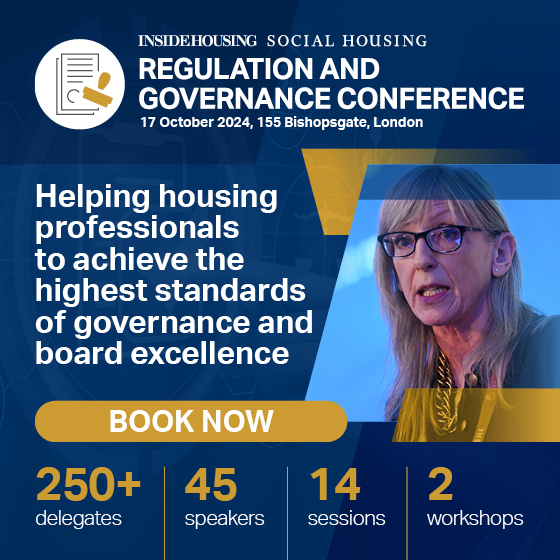You are viewing 1 of your 1 free articles
An academic qualification does not necessarily equal professionalism
Culture is the responsibility of each individual organisation and it is not something that should be regulated on, writes Paul Fiddaman, chief executive of Karbon Homes

Paul Fiddaman is chief executive of Karbon Homes. Prior to the creation of Karbon Homes, Paul served as chief executive of the Isos G ...more
Every day, housing sector colleagues head out into their communities and create opportunities for our residents, from which they can build strong foundations and thrive in life.
Despite the brilliant work that housing associations are doing up and down the country, we’ve found ourselves in the midst of a debate about the ‘professionalisation’ of our sector and the introduction of mandatory qualifications for certain colleagues.
The discussion around academic qualification has been intertwined with professionalism, which in my view is more of a cultural concept. In fact, one does not necessarily equate to the other.
It is difficult to define what it means to be a ‘professional’. Personally, I see a professional as someone who has expertise and specialist knowledge in their field, someone who puts customer satisfaction first, does more than what’s expected, communicates effectively, and is someone who can be trusted and sticks to their word.
It is these traits that we often see in our strongest performing colleagues, those who have a desire to use their talents to make a difference to people’s lives. It’s one of the things I love most about the sector: our passionate, energetic and committed colleagues.
Holding an academic qualification in housing doesn’t necessarily make the list for me.
Our organisations do, of course, rely on demonstrable technical skill sets throughout, whether that is accountants in our finance teams, HR professionals, qualified tradespeople in our repairs and maintenance teams, or chartered surveyors.
“In many of these cases, it was a significant cultural failing within the organisation that led to this – where colleagues didn’t show customers the respect they deserve and didn’t take their views seriously”
But for those working within housing management, I don’t believe that holding a formal qualification is necessarily the key to professionalism. Although, I am fully supportive of those who choose to develop their careers in this way, and acknowledge the benefits that access to technical knowledge brings.
Over recent years, and particularly in the aftermath of the Grenfell tragedy, we have seen examples of organisations that have lost sight of the importance of listening to and acting upon the concerns of customers. In many of these cases, it was a significant cultural failing within the organisation that led to this – where colleagues didn’t show customers the respect they deserve and didn’t take their views seriously.
However, it doesn’t follow that if those colleagues had gained a formal qualification, that their attitudes and mindset would have been any different. Rather it’s the cultural environment of the organisation that reinforces positive behaviours and encourages individuals to take ownership of inevitable issues that arise and work diligently to resolve them.
Culture is a matter for each individual organisation and its board to define, deliver and prioritise. It’s that same culture that will help organisations to recruit people whose attitudes and behaviours are naturally aligned to their values.
There are those who would suggest that requiring academic qualifications would be helpful in elevating the status of housing as a career choice. But hand in hand with that, there is a real risk that imposing an academic barrier will deter good candidates from joining the sector, or discourage capable and experienced colleagues who may decide to use their skills in other sectors.
This would be unhelpful at a time when the sector needs new recruits.
“The reintroduction of consumer regulation will play an important part in forcing us to confront attitudes in our own organisations that fall short of the customer-focused behaviours to which housing organisations should aspire”
The roll-out of formal qualifications among existing colleagues may further compound this recruitment challenge, placing further pressure on teams, who are already working hard to deliver against the ever-increasing demands that are placed on them, particularly in relation to meeting the needs of our most vulnerable customers.
This makes it critically important that if academic qualifications do become necessary, we find a route for our existing colleagues that takes full account of their accumulated experience and is based on the provision of practical evidence, instead of classroom learning.
The reintroduction of consumer regulation will play an important part in forcing us to confront attitudes in our own organisations that fall short of the customer-focused behaviours to which housing organisations should aspire, and is therefore a welcome addition to the regulatory landscape.
However, culture is the responsibility of each individual organisation and it is not something that should be legislated for or regulated on. It’s an overreach from the government to do so. It needs to be part of who we are and how we do things. Yes, academic qualifications have a role to play, but, for me, they aren’t the sole answer.
Paul Fiddaman will be speaking at Housing 2024. Hear from him during the ‘Achieving a sector-wide professionalism boost’ session at 11am on Tuesday 25 June. To find out more or book your delegate pass, click here.
Sign up to the Regulation and Governance Conference 2024
At a time of major regulatory change, the Regulation and Governance Conference is designed to give board members and governance and risk professionals the insight they need to plan and prioritise effectively.
Join more than 250 delegates and 45 speakers to confidently navigate the change ahead and ensure you have the right governance structures and assurance frameworks to keep tenants safe and run a viable business.












